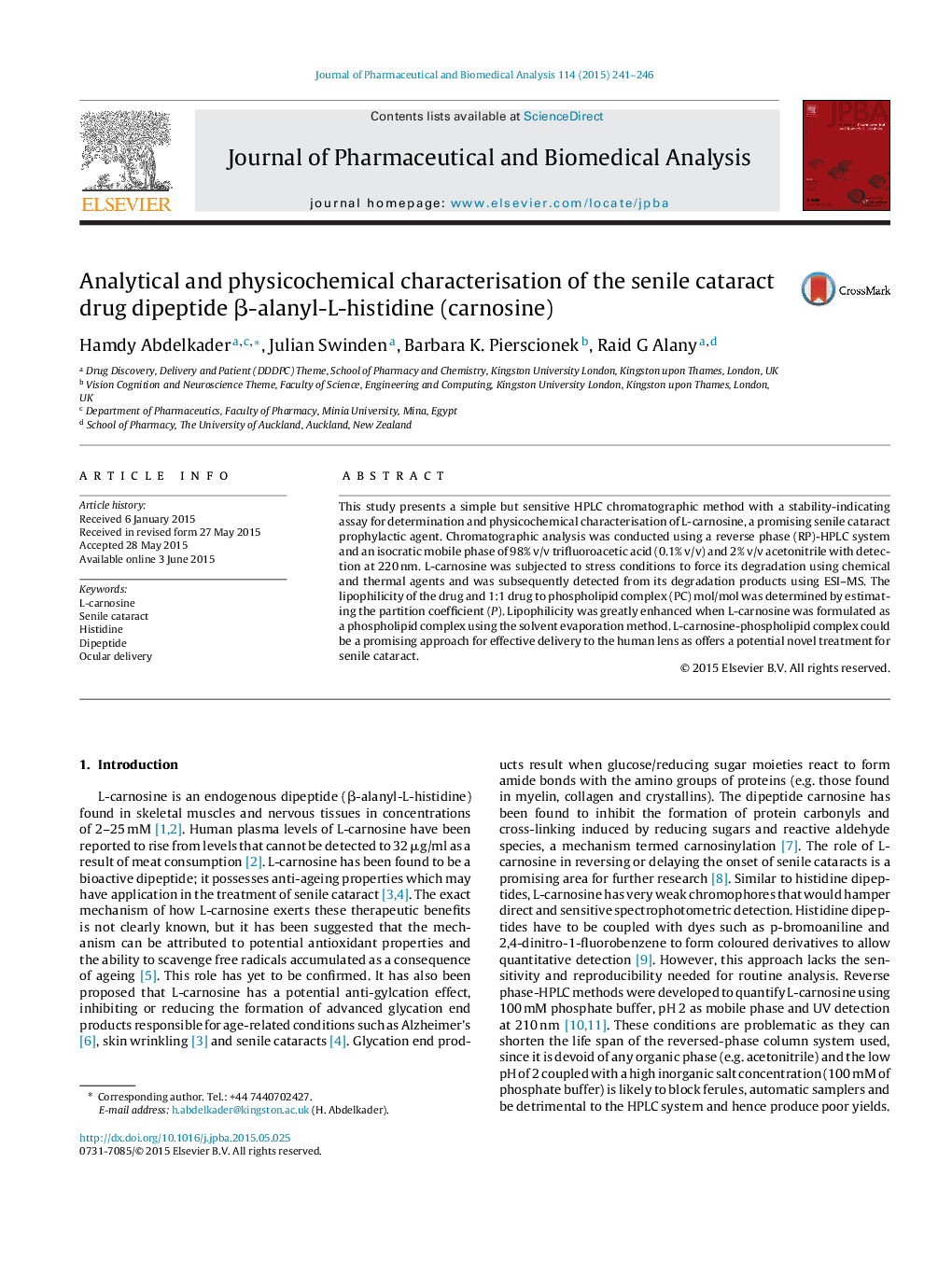| Article ID | Journal | Published Year | Pages | File Type |
|---|---|---|---|---|
| 1220845 | Journal of Pharmaceutical and Biomedical Analysis | 2015 | 6 Pages |
•L-carnosine is a promising medical treatment for senile cataracts.•L-carnosine is chemically stable in aqueous neutral solutions.•Main degradation pathway is cleavage of the dipeptide bonds without detectable autoxidation.•L-carnosine-phospholipid complexation can be utilised for enhanced ocular transport.
This study presents a simple but sensitive HPLC chromatographic method with a stability-indicating assay for determination and physicochemical characterisation of L-carnosine, a promising senile cataract prophylactic agent. Chromatographic analysis was conducted using a reverse phase (RP)-HPLC system and an isocratic mobile phase of 98% v/v trifluoroacetic acid (0.1% v/v) and 2% v/v acetonitrile with detection at 220 nm. L-carnosine was subjected to stress conditions to force its degradation using chemical and thermal agents and was subsequently detected from its degradation products using ESI–MS. The lipophilicity of the drug and 1:1 drug to phospholipid complex (PC) mol/mol was determined by estimating the partition coefficient (P). Lipophilicity was greatly enhanced when L-carnosine was formulated as a phospholipid complex using the solvent evaporation method. L-carnosine-phospholipid complex could be a promising approach for effective delivery to the human lens as offers a potential novel treatment for senile cataract.
Graphical abstractFigure optionsDownload full-size imageDownload as PowerPoint slide
